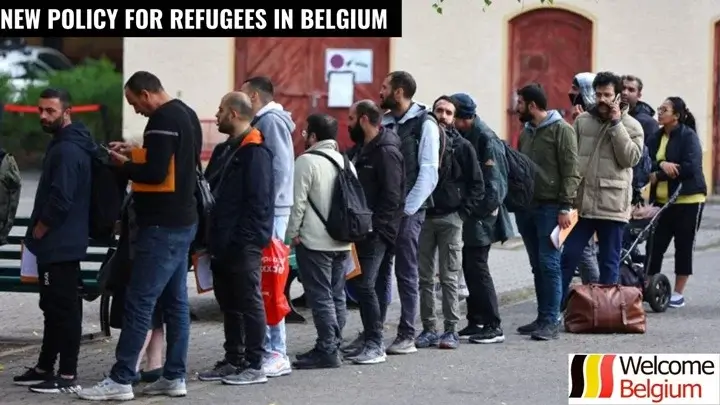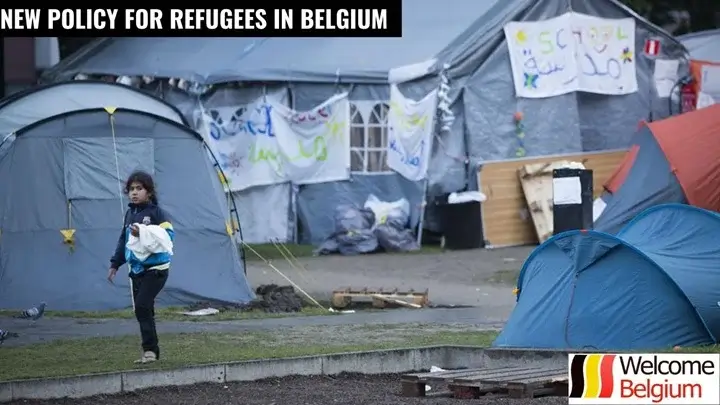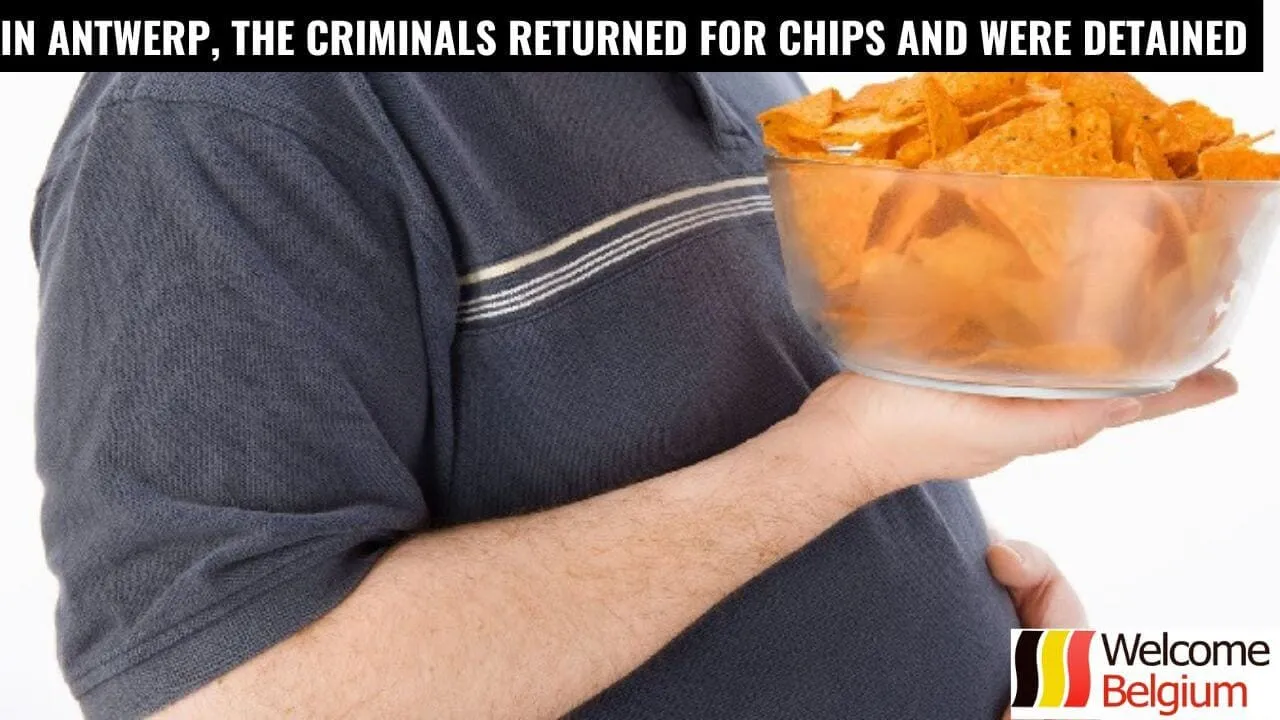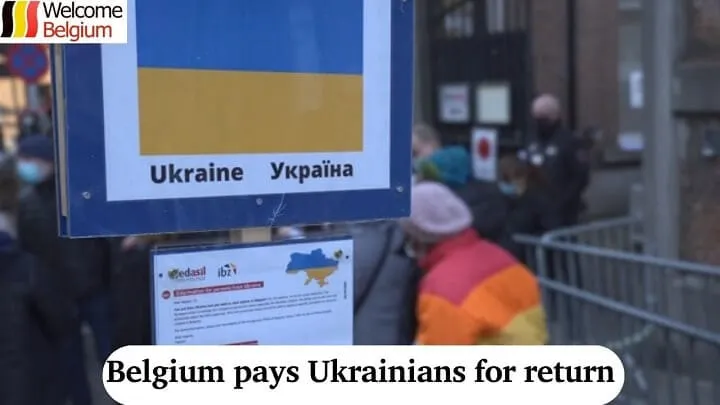In August 2025, Belgium took a bold step by reshaping its asylum policy. As of August 4, individuals already granted protection status in other European Union countries are no longer eligible for places in Belgian shelters. This decision, part of “crisis measures,” aims to curb “asylum shopping”—the practice of applying for asylum in multiple countries. Minister for Asylum and Migration Annelien Van Bossuyt emphasized that the goal is to ease the strain on an overburdened system and make Belgium less appealing for secondary migration.
The policy has sparked heated debates. Critics label it inhumane, warning of increased homelessness among refugees, while supporters see it as a way to regain control over migration flows. This article examines the reasons, details, and consequences of the new policy, as well as its impact on refugees, society, and Belgium’s international reputation.
Reasons for Tightening Migration Policy
Belgium has been grappling with an overloaded asylum system for years. In 2024, the country received around 40,000 asylum applications, with 15,000 from individuals already registered or granted protection in other EU countries. This placed immense pressure on Fedasil, the agency responsible for refugee reception. Last year, shelters were 94% full, with a total of 36,077 places, yet thousands, particularly single men, remained without housing, waiting up to 3–4 months.
Political pressure also played a pivotal role. The right-wing cabinet led by Prime Minister Bart De Wever (Flemish nationalist party N-VA) prioritized stricter migration policies, aiming for “Europe’s toughest system.” Over 8,000 lawsuits against Fedasil for failing to provide housing further underscored the need for reform. Consequently, the government restricted shelter access for those already protected in other EU countries to reduce secondary migration and alleviate infrastructure strain.
Details of the New Policy
As of August 4, 2025, Belgium introduced changes to streamline its asylum system and reduce applications. Key measures include denying shelter to refugees already holding protection status in another EU country and expediting the processing of applications from those who previously applied elsewhere. The General Commissariat for Refugees and Stateless Persons (CGVS) now issues faster decisions on the inadmissibility of such claims, while the Dublin Regulation is more actively enforced to return migrants to their first country of registration.
Minister Van Bossuyt also launched information campaigns via YouTube and WhatsApp to deter potential refugees from coming to Belgium. These campaigns highlight overcrowded shelters, strict rules, and limited opportunities for those already protected elsewhere. Authorities say these steps will allow resources to focus on those genuinely in need of asylum and reduce Belgium’s appeal for secondary migration.
Impacts on Refugees and Society
The new policy is already reshaping Belgium’s landscape, with both humanitarian and societal consequences. For refugees, the denial of shelter access increases homelessness risks, particularly for single men who already faced barriers. Stricter enforcement of the Dublin Regulation may send many back to countries with less favorable conditions, raising concerns among human rights advocates. Refugees with temporary protection, such as those fleeing wars, now face restrictions on family reunification and social benefits.
In society, the policy has caused division. Right-wing parties like N-VA and Vlaams Belang back the measures, viewing them as essential for national interests. However, left-wing and Green parties, along with organizations like Amnesty International, criticize the government, warning of a humanitarian crisis. The Netherlands’ decision to halt transfers of single male refugees to Belgium under the Dublin Regulation, citing “systemic failures” in the reception system, has damaged Belgium’s international reputation, fueling criticism both domestically and abroad.
International Community’s Reaction
Belgium’s new policy has drawn attention from international organizations and neighboring countries. Key responses include:
- The European Commission and Council of Europe urged Belgium to uphold human rights and international obligations, emphasizing a humanitarian approach to refugees.
- The Netherlands refused to send single male refugees to Belgium, citing risks of inhumane treatment due to lack of housing and legal protection.
- Human rights groups like Amnesty International and Human Rights Research Center accuse Belgium of creating a “self-inflicted crisis” by refusing to expand shelter capacity.
- Within Belgium, activists and NGOs, including Médecins Sans Frontières, continue aiding homeless refugees despite limited resources.
- International media highlight the policy as part of a broader trend of tightening migration rules across Europe.
These reactions underscore the complexity of the issue and the need to balance national interests with humanitarian commitments.
Alternatives and Prospects
Despite the stricter policy, experts and advocates propose alternative solutions to the migration crisis:
- Implementing the 2015 law on distributing refugees across municipalities to increase shelter capacity.
- Investing in infrastructure and improving conditions in existing centers to ease system pressure.
- Strengthening EU cooperation, including the 2026 Migration and Asylum Pact, for fairer refugee distribution.
- Increasing funding for NGOs, which play a critical role in supporting refugees, to mitigate humanitarian impacts.
- Developing long-term integration programs to reduce social tensions and facilitate refugee adaptation.
Belgium’s migration policy future hinges on its ability to balance migration control with humanitarian standards. For now, the country faces both internal and external pressures.
Conclusion: Belgium at a Crossroads
The new migration policy, effective from August 2025, reflects Belgium’s attempt to address an overwhelmed asylum system. Yet, it raises serious questions about humanity and compliance with international standards. While authorities aim to restore control, human rights advocates warn of rising homelessness and deteriorating refugee conditions.
Can Belgium balance strictness with compassion? The answer will shape not only the future of refugees but also the country’s standing in the global community. The policy continues to spark debate, highlighting the complexity of Europe’s migration crisis and the need for a comprehensive approach.




